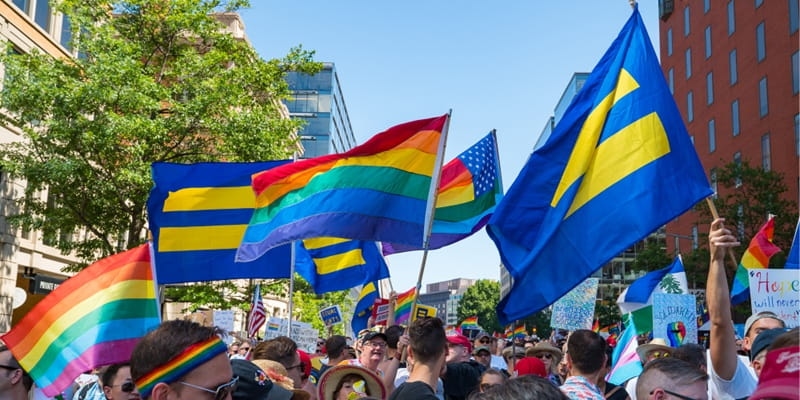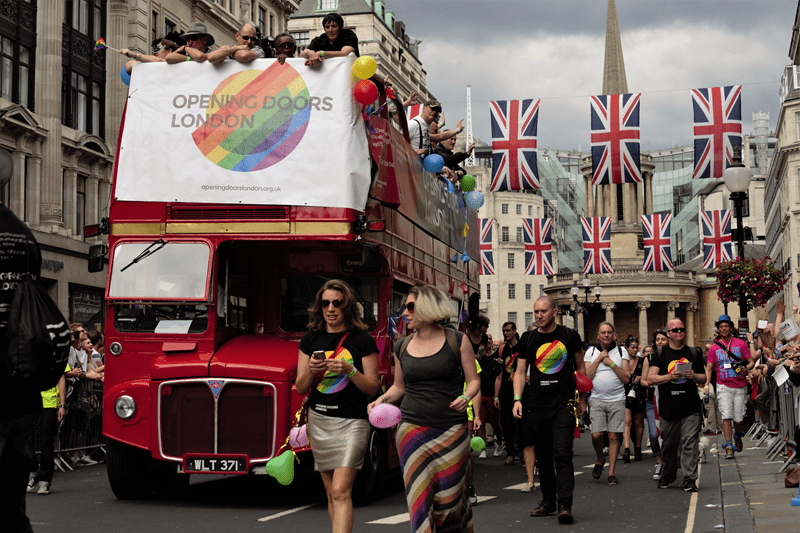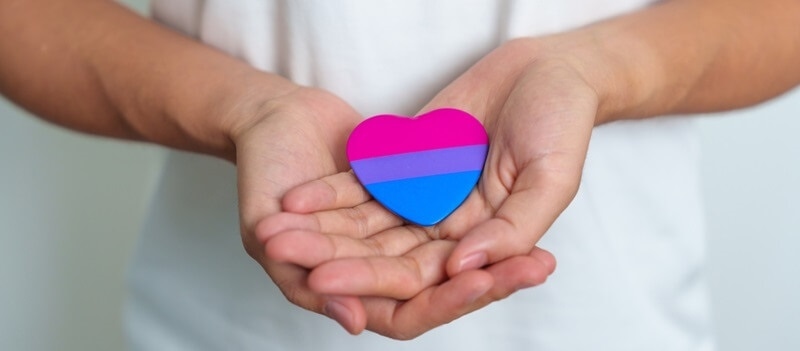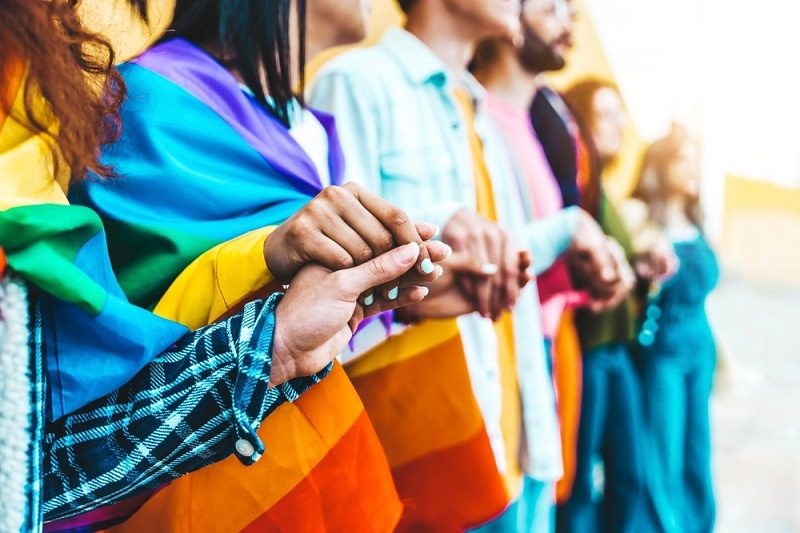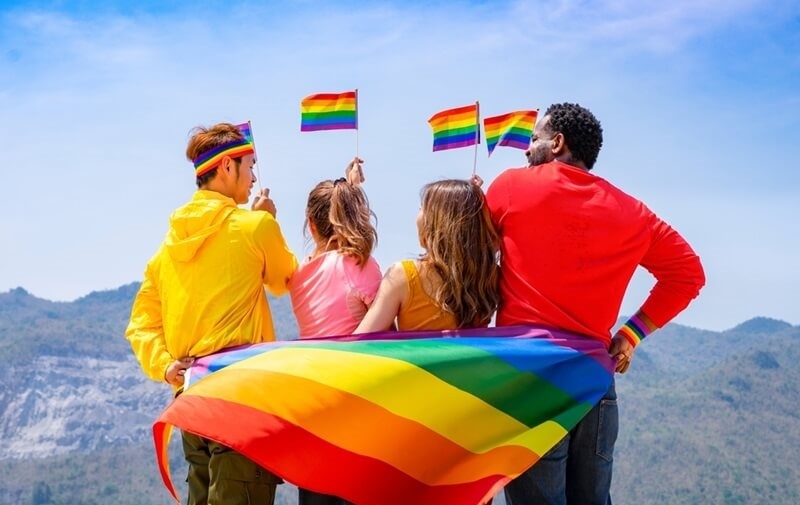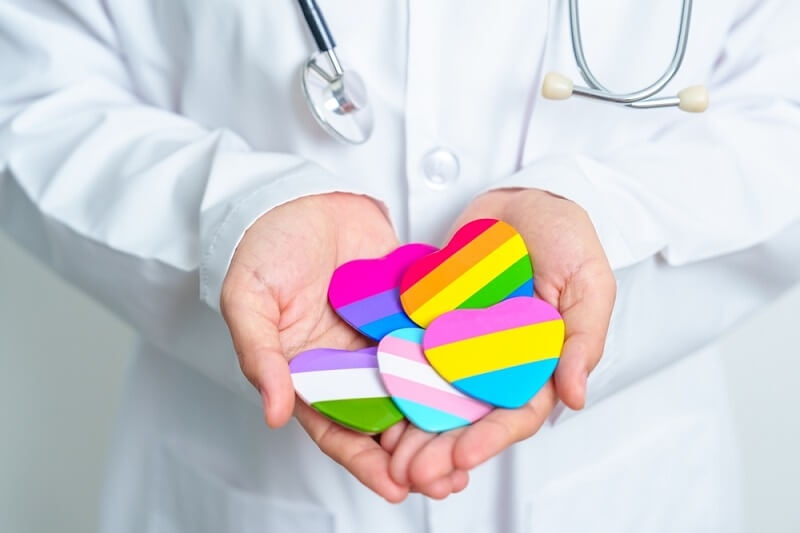Mental Toughness & Its Impact on LGBTQ+ Mental Health

Mental toughness is the capacity to stay steadfast, focused, and resilient in the face of adversity. It equips individuals to hold up even when experiencing stress and setbacks and keeps them emotionally even. As they disclose their sexual orientation, their challenges may put them under undue pressure that affects their mental well-being. In contrast, today's studies show that that is dependent upon a person's ability to develop psychological resilience, self-acceptance, and coping methods. These elements help enhance mental wellness and ensure an individual lives a more complete lifestyle. For the LGBTQ community, this mental toughness is very relevant, as most members face challenges of their own, such as discrimination, social exclusion, and internalized struggles concerning identity.
The truth is that the said years will not change the need for mental toughness indefinitely. Societal attitudes will evolve, and societal demands will, too. The advancement of LGBTQ rights and representation has been witnessed, but there emerges issues like online harassment, discrimination in the workplace, and stigma against mental health. Practicing self-care, setting boundaries, getting involved in some community or support groups, and challenging negative thought patterns can be included as a part of the development of mental toughness. Fostering emotional resilience allows an LGBTQ individual to better handle life's many obstacles, advocate for themselves, and create a strong, confident mindset. The blog will highlight a few of the techniques that increase mental toughness and empower an LGBTQ individual to thrive even amid an ever-changing world.
Also, read about How Media Representation Shapes Perceptions of LGBTQ+ 2025.
Understanding LGBTQ+ & Mental Health Challenges
The emotional well-being and resilience of LGBTQ+ individuals are often influenced by challenges unique to their mental health status. Not only do they experience discrimination and stigma, but those barriers are becoming more entrenched with bias in places such as workplaces, schools, and healthcare, making it even more daunting to seek help. Another barrier for many LGBTQs is family rejection, as they would typically be deprived of ultimate acceptance of their loved ones, creating feelings of loneliness, low self-esteem, and emotional anguish. Such experienced abuses probably make it harder for them to strengthen their support system, which may, in the long run, negatively impact mental health.
Internalized homophobia and transphobia complicate mental well-being. Internalized negative messages from society concerning their identity may lead LGBTQ+ individuals to displace self-doubt and shame that can contribute to mental health illness. A higher prevalence of anxiety, depression, and suicidal ideation in individuals from the LGBTQ+ community is thus observed. Social isolation and microaggressions, such as dismissive remarks or subtle prejudice, also dent self-confidence and ego. Understanding these difficulties is the first step in developing mental toughness to enable LGBTQ+ persons to overcome adversity and develop resilience in a world that changes all the time.

What is Mental Toughness?
Mental toughness refers to the ability to hold focus, adjust to situations, and regulate emotions under stress. It enables a person to withstand challenges without being worn down. The core components of mental toughness are resilience or recovery from setbacks, confidence or belief in oneself; emotional regulation or the efficient management of emotions; and adaptability or growth within change.
In this regard, for LGBTQ+ individuals, truly working on developing their mental toughness is very powerful against discrimination, rejection, and internal battles. The stronger and more developed these mental toughness traits are, the more resilient LGBTQ+ individuals will become in maintaining well-being and facing the adversities of life with confidence while standing true to themselves.
Also, read Navigating Healthcare as an LGBTQ+ Individual: What to Know.
How Mental Toughness Strengthens LGBTQ+ Mental Health.
Mental toughness plays a crucial role in strengthening mental health in the LGBTQ+ community, allowing them to exercise much-needed resilience and confidence when facing the myriad challenges they encounter. Mental toughness, among other features, will minimize bereavement over controversy. Be it an argument on the disapproval within an individual's family or just one personal failure, mental endurance will help a person process the rejection without tying it to perceptions of self-worth. Furthermore, it would also promote self-confidence and self-acceptance and tell a person to be proud of who they are despite the expectations society sets against them.
Moreover, mental toughness equips one with coping mechanisms to withstand stress, anxiety, and negativity from others. Emotional regulation and mindfulness allow LGBTQ+ persons to navigate hardships with greater constancy. This also creates a safe space for strong boundaries in which an individual can articulate needs for protection and well-being. Having a grounded mind will thus allow one to create boundaries from toxic relationships and environments. Through mental toughness, LGBTQ+ individuals can simultaneously draw strength, take pride in their identity, and live a more rewarding and healthy life.
Building Emotional Resilience
Emotional resilience is necessary to create a strong mental health environment, boosting the need for such self-care activities within the LGBTQ+ community. Self-compassion enables the individual to recognize his or her inner struggle without condemning this space with self-judgment, allowing a journey toward kinder and more accepting thinking. Through building coping skills such as mindfulness, therapy, and relaxation techniques, they equip themselves with adequate skills against stress and emotional challenges. Furthermore, reframing negative thoughts is essential; replacing self-condemnation with self-empowerment can allow LGBTQ+ individuals to perceive losses as a space for personal growth. This resource-building and prioritization of mental self-care, therefore, equip them to walk through discrimination, rejection, and personal challenges with success, culminating in enhanced well-being and a life well lived.
Cultivating a Supportive Network
Mental health for the LGBTQ+ community is to build a good supporting network. Finding an LGBTQ+-friendly community where there are support groups or social organizations gives a sense of belonging and decreases solitude. Allies- friends, family, or mentors who respect you and uplift you- create a good atmosphere to develop a sense of self-worth.
Moreover, the seeking of affirmative mental health support is crucial. It is important to work with an LGBTQ+-friendly therapist so as to build a point of reference around coping and a safe place to explore challenges. A supportive network makes the LGBTQ+ person's toolbox stronger through improved mental self-care in building a healthy, confident life.
Also, read Why Gay Depression is Often Overlooked: Addressing the Issue.
Turning Challenges into Personal Growth
Mentally strengthening the LGBT community hinges on overcoming adversities. Anything that is challenging could potentially impart a great lesson and a building block of strength. Encounters with adversity become, then, a practice of reflection that enables building resilience and becoming more self-aware. Equally important is the practice of setting achievable goals. An often-neglected fact is that small victories actually help build momentum that enhances confidence and establishes a foundation for growth. Celebrating small victories will further enhance mental self-care and self-worth. Recognizing growth creates a mindset of abundance and supports further growth in mental resilience so that LGBTQ+ individuals can confidently face the challenges of life and embrace the journey toward self-empowerment.
Conclusion
Having positive mental health and care around it, in both the gay mental health and LGBT communities, could be further strengthened with mental toughness as a potent tool for navigating life's challenges and protecting well-being. Through resilience-building, fostering supportive connections, and self-advocacy, members of the LGBTQ+ community can cultivate the confidence necessary to face adversity.
Mental self-care and affirming spaces make further contributions toward emotional strength and stability. Powering and constantly thriving can be achieved from 2025 onwards if they accept their identity with pride and perseverance. All should enjoy feeling that they are strong, supported, and empowered to make the future affordable for all people within the LGBTQI spectrum to live authentically and confidently without hesitation at every turn.






